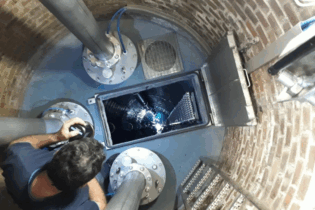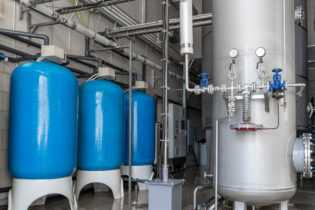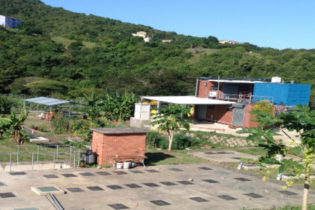The Department of Water and Sanitation (DWS) has commenced consultations on the establishment of a new utility to help entice private investment in infrastructure needed to head off potentially crippling water shortages.
The department plans to submit a bill to the cabinet by the end of April that sets out proposals for the creation of the National Water Resources Infrastructure Agency (NWRIA), which seeks to address issues of water securities and socio-economic growth, and development. It will be created by combining the department’s Water Trading Entity and the Trans-Caledon Tunnel Authority, or TCTA, and could be operational next year. The two-day internal sessions attended by DWS Deputy Directors-General, Chief Directors, Provincial Heads, as well as Chief Executive Officers of water entities and water boards, intended to facilitate stakeholders’ participation, raise awareness, capacity building, and knowledge sharing to ensure buy-in. The consultations paved the way forward toward the formation of a state-owned entity. During the State of the Nation address in 2022, President Cyril Ramaphosa said the establishment of the NWRIA will be accelerated. He announced that legislation has been prepared for the establishment of the agency, and will be published for public comment within a month. Acting Chief Director for Institutional Oversight at Water and Sanitation, Eustathia Bofilatos, said the entity is envisaged to undertake the building, operation, financing and maintenance of national water resources assets, while the department retains responsibility for planning, regulation, policy and price setting. Bofilatos said on completion of the consultations, which include engaging labour unions, the draft bill will be submitted to the cluster and published for public comment by April 2022. It will be tabled in Cabinet by May 2022. “If everything goes according to plan, the final bill will be submitted to Parliament in July 2022 and the NWRIA is anticipated to be passed by January 2023 depending on the Parliament processes. In addition, we expect the board of the new agency and CEO to be appointed by May 2023,” Bofilatos said. NWRIA Project Manager, James Ndlovu, said the agency will provide raw water, and its focus will be on the under-served, and the poor to ensure a sustainable, equitable and reliable supply of water from national water resources infrastructure. “A lot more investments in water infrastructure projects is required to guarantee water security in the country, this agency will foster private partnerships to make certain that challenges related to water and sanitation are addressed,” Ndlovu said.Ndlovu also indicated that NWRIA would be enabled to perform its functions by means of transferring the national water resources assets to it, as well as the staff of the Trans Caledon Tunnel Authority (TCTA), the Water Trading Entities (WTE) and the Infrastructure Branch of the department.
The department reiterated that the establishment of the agency will be inclusive of the existing skills in the sector and will create additional capacity. “It is envisaged that this will not result in any job losses,” the department said. Water Assets The replacement value of South Africa’s national water assets is currently between R200 billion and R300 billion, according to Sean Phillips, NWRIA director-general when asked about the potential size of the entity’s balance sheet. The Water Trading Entity was created in 1983 to develop, operate and maintain national water assets using money allocated from the national fiscus. The TCTA, an agency of the water department, was established in 1986 and initially raised finance and built the South African section of the Lesotho Highlands Water Project, which supplies the country with water from the mountainous enclave of Lesotho. It has since built a number of other projects. The TCTA has raised private finance but it has depended on Treasury guarantees that have added to credit-rating risks for the government, which has already accumulated sovereign debt that equates to about 70% of gross domestic product. The authority currently has outstanding loans of R3.8 billion, according to data compiled by Bloomberg. While the TCTA has raised money on a project-specific basis, the new utility could seek funding based on the national revenue stream from water services, Schreiner said. That could see some of the money directed toward providing water for underserved communities, she added. The establishment of the agency has been under consideration since before the end of apartheid in 1994, but its creation was stalled after South Africa’s first democratic elections as the new government didn’t regard it as the best structure to make water access more equitable as supply was extended to additional Black households. A renewed attempt to set it up in about 2008 failed and the idea was then revived several years ago.






